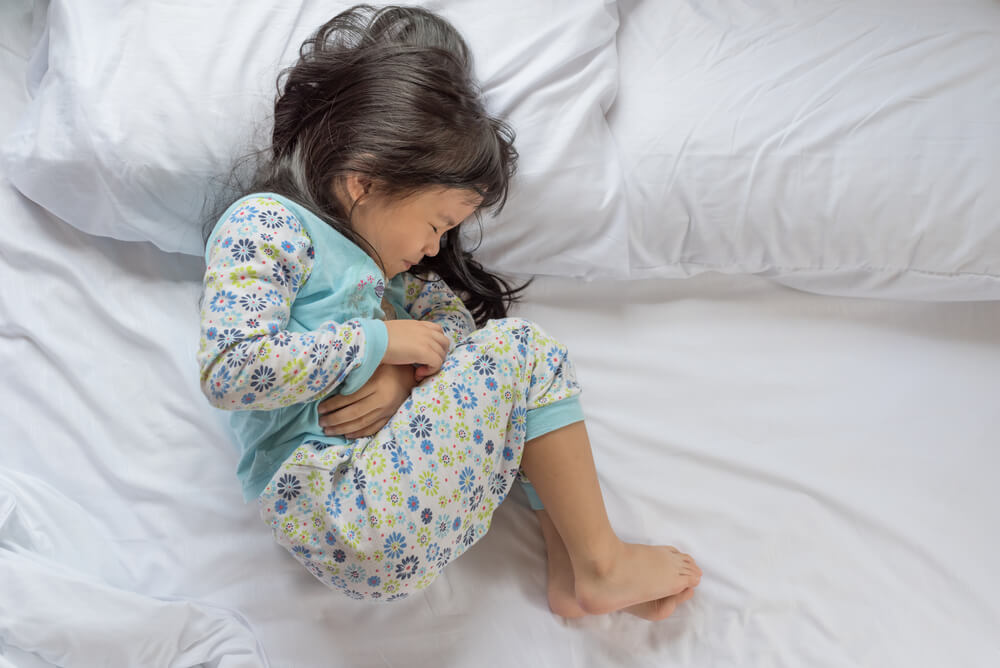As a parent, you’ve likely encountered the age-old question: Should I call the pediatrician, or will this illness get better on its own? Childhood illnesses are common, but they can be serious if they go untreated. Here are six scenarios that might require the attention of a Florida pediatrics specialist and how to recognize if it’s time to call and make that appointment.
1. Ear Infection
Any child can have an ear infection, but it’s a common occurrence for some children. If your child is one of the unlucky ones, you probably know what to look for. For newbies, the signs can be hard to detect, especially in children who aren’t talking yet. When your toddler doesn’t appear to be feeling their best, these symptoms may mean it’s time to call the pediatrician:
- An earache, especially when lying down
- Pulling or tugging on an ear
- Unexplained crying
- Sleep problems
- Loss of appetite
- Headache
- Fussiness
- Drainage
- Loss of balance
When not treated, ear infections can lead to complications like hearing loss, inflammation, and perforated eardrum, so it doesn’t hurt to seek help even if you’re unsure.
2. Fever
If you notice a fever, try to make your child comfortable, offer fluids to prevent dehydration, and call a pediatrician if your child falls into any of these categories:
- Sore throat, ear pain, rash, diarrhea, vomiting, or stiff neck
- Fussiness, drowsiness, or looking ill
- Exposure to extreme heat
- Compromised immune system
- History of seizures
- Temperature of 100.4 or higher in children under 12 weeks
- Temperature above 104 degrees for children of any age
Check with your pediatrician before your child gets sick because they’re familiar with your child’s medical history and their suggestions may vary.
If the child is under 2 years, the fever may last for 24 hours or longer. If it’s an older child, the fever may persist for three days or longer. Even after the fever comes down, call the doctor if your child still seems ill or if the illness gets worse.
3. Stomach Ailments
A stomachache is one of the most frequent complaints among children, and it’s often hard to tell what’s causing it, especially in very young children. Causes run the gamut from hunger pangs and gas to stress and constipation. One of the best things parents can do with older children is to ask them to describe the pain and tell them where it’s located. It also helps to touch the belly to see if it makes the pain worse. If you don’t have an explanation and the pain doesn’t go away, it’s time to call the pediatrician.
These questions may help you find the cause and explain the pain to the doctor:
- Is the pain quickly getting worse?
- Does it hurt more when the child walks or jumps?
- Is the child constipated?
- Is the pain in the lower abdomen or bladder area?
- Does the urine smell or look different?
- Has bedwetting increased?
- Is the stomach pain accompanied by a sore throat, fever, rash, headache, or vomiting?
- Does it hurt when you touch between the belly button and the right side?
If there is a tender belly, fever, or vomiting and the child doesn’t want to eat, check with a medical source like an advanced pediatrics specialist in Florida to see if you need to go to the ER to rule out appendicitis.

4. Falls
No matter how careful you are, it only takes a second for a child to fall and get hurt. Minor injuries usually resolve on their own, but they still require monitoring. Even if the fall doesn’t seem to be bad, look for these warning signs to determine when it’s necessary to call a doctor:
- Loss of consciousness
- Seizure
- Headache
- Confusion
- Irritability
- Loss of balance
- A spongy bump on the head
It’s better to call the pediatrician when it isn’t necessary than to risk leaving a serious injury untreated.
Falls can be prevented by putting safety gates on stairs and guards on windows to keep young children safe. It also helps to have a soft surface below playground equipment and use the proper pads, guards, and helmets when playing sports. Keeping a close watch and removing hazards makes any area safer for kids.
5. Cough
Children, especially young ones, frequently have coughs and runny noses. If there’s coughing with no fever, breathing is normal, and the child is their usual self, it’s probably safe to wait a few days to check in with the pediatrician. Take simple measures, like using a humidifier or running a hot shower while you sit nearby and hold the child, or use nasal saline or a suction device to clear the nostrils to increase comfort.
If your child is a newborn, or if the illness is getting worse for your older child, it might be a good idea to check in with the pediatrician. Other warning signs to see a doctor include difficulty breathing, a fever that persists, or chest pain. Children under 3 years old are at risk of developing croup because their airways haven’t fully developed. The better you can describe your child’s cough, the easier it will be for the pediatrician to know what’s wrong, so be sure to keep a close eye on your little one.
We Can Help
If you’re looking for a Florida pediatrics specialist, we have the best pediatrician in Miami. Dr. Ana received her degree from the University of Miami and has over 20 years of experience working with children. She is currently seeing patients ranging in age from newborn to 18 in person or by telemedicine. She can recognize, diagnose, and treat childhood illnesses, helping your child live a happier, more productive life.
Contact us today to schedule an appointment or get more information.




